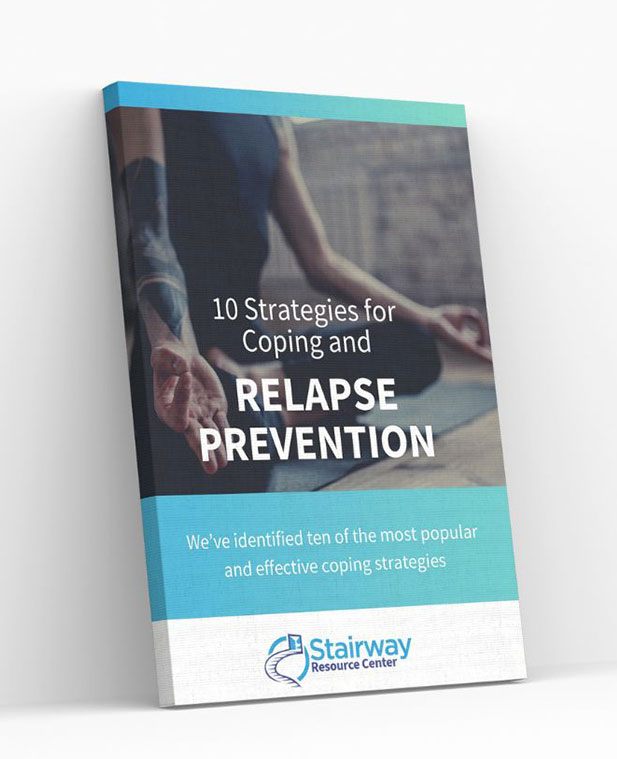
Addiction Relapse Prevention Therapy in Los Angeles
Relapse prevention is an essential part of addiction recovery at Stairway Resource Center in Los Angeles, California. We understand that recovery from substance use disorders is a journey that extends beyond initial treatment, and we’re here to support you every step of the way. Relapse, though common, doesn’t mean failure; rather, it’s a signal that further growth and new strategies may be needed. Our relapse prevention program offers compassionate support and effective strategies to help you build resilience and maintain sobriety, improving your well-being.
Your Recovery Starts Here
If you or a loved one is ready to take the first step toward a brighter future, Stairway Resource Center is here to help. Our compassionate team of addiction care experts is ready to provide the support and guidance you need to embark on your journey to long-term recovery. Contact us today at (888) 450-2701 to learn more about our programs and how we can assist you in creating a life free from addiction.
Our Admissions Process
As a community-based treatment center, it’s important to us to share helpful resources and expert content created for those who are seeking treatment or already in recovery. Ready to get started on your recovery journey with Stairway Resource Center? Learn more about our admissions process or call our treatment center to speak with one of our treatment experts.

Understanding RelapseSigns and Triggers in Relapse Prevention Therapy
Relapse often starts with emotional and psychological shifts. A relapse does not abruptly occur; it is more of a gradual process. You may experience emotional or mental symptoms in the beginning, and if left unaddressed, a physical relapse happens. Here are some common warning signs of a relapse to look out for:

Recognizing Triggers and High-Risk Situationsin Relapse Prevention Therapy
Triggers are the specific situations, environments, or emotional states that make relapse more likely. Understanding your triggers can empower you to plan proactively. Common triggers include:
At Stairway Resource Center in Los Angeles, our relapse prevention program is designed to help you identify these triggers and develop practical strategies for managing them.
Start Your Journey to Wellness Today
Take the first step toward long-term recovery at Stairway Resource Center. Call us to verify your insurance and get started on your journey to recovery from alcohol use disorder.
Effective Relapse Prevention Strategies
Relapse, though common, doesn’t mean failure; rather, it’s a signal that further growth and new strategies may be needed. At Stairway Resource Center, we believe that relapse prevention requires a combination of self-awareness, skill-building, and a strong support system. Our relapse prevention therapy in Los Angeles incorporates various evidence-based therapies to build these essential elements into your daily life. The program offers compassionate support and effective strategies to help individuals like you build resilience and maintain lasting sobriety.
Developing a Personalized Relapse Prevention Plan
Each individual’s recovery plan is unique, which is why our relapse prevention plans are personalized. Working closely with a mental health therapist, you’ll soon identify your specific signs of relapse, triggers, and strategies for managing them, such as:
Coping Skills for Stress Management
Mental health issues can be challenging to manage without professional support. Stress management is vital to prevent relapse. Effective coping skills, such as the following, can help mitigate the impact of stressful situations on mental health and substance use disorder recovery.
Utilizing Support Networks and Peer Support
A strong support network in recovery provides motivation, accountability, and a greater sense of connection with others. Peer support, including group psychotherapy or 12-Step meetings, fosters a safe, sober community while reducing social isolation.
Other ways Stairway Resource Center helps clients form support networks include:

Therapeutic Approaches to Relapse Prevention in Addiction Treatment
Our treatment program is a cornerstone of relapse prevention, offering a structured environment and holistic approach to care. You can learn practical skills and coping strategies to achieve lasting recovery. Detox, individual therapy, group therapy, and developing an aftercare plan can also help you overcome drug or alcohol use.
Cognitive Behavioral Therapy (CBT) Techniques
CBT is a highly effective, evidence-based therapy for relapse prevention. This type of therapy safely addresses the underlying thought patterns that can lead to substance abuse. During a typical cognitive-behavioral therapy session, clients can learn to:
Dialectical Behavior Therapy (DBT) for Emotional Regulation
DBT is especially beneficial for individuals who may struggle with emotional dysregulation. This type of psychotherapy focuses on developing new skills, such as:
Family TherapyInvolving Loved Ones in Recovery
Family therapy is an integral part of our relapse prevention program. Addiction impacts not only the individual but also their loved ones. Involving family members in therapy sessions can help:

Ongoing Support and Aftercare Programs
Recovery doesn’t end after residential treatment or outpatient care. Our aftercare programs provide continuous support, helping individuals build lasting sobriety and resilience.
The Importance of Aftercare in Addiction and Dual Diagnosis Recovery
Aftercare programs offer a safety net, reinforcing the skills learned during treatment. Stairway Resource Center offers tailored aftercare for individuals managing both SUD and mental health conditions, including:
Resources for Continued Growth and Sobriety
Long-term recovery requires continuous growth and strong dedication to relapse prevention. Our compassionate recovery team at Stairway Resource Center connects individuals with resources that support sobriety and enhance life skills.
Does Stairway Resource Center Accept Insurance?
Stairway Resource Center accepts most major insurance providers. Please feel free to fill out our online insurance verification form, and one of our team members will contact you promptly to help you get started with the process. Please note that you can always call us to discuss healthcare or learn more information.

For those seeking effective relapse prevention in Los Angeles, Stairway Resource Center offers compassionate, evidence-based care. Our experienced team is dedicated to building resilience and supporting lasting recovery. Contact Stairway Resource Center today to learn more about our individualized programs and take the next step toward a healthier, sober life.
Get Your Free Guide:“10 Strategies for Coping and Relapse Prevention”
We’ve identified ten of the most popular and effective coping strategies.

Ready for Relapse Prevention?
Contact Us Today Your treatment doesn’t end when the outpatient program is over.
Stairway Resource Center is dedicated to providing an aftercare plan that can help you locate healthcare providers, identify potential support groups, establish a physical fitness routine, locate community resources, find online and print resources, and access official aftercare services. If you or someone you care about requires relapse prevention, call Stairway Resource Center today and learn more about our Community Support and Sober Living services.
Frequently Asked Questions About Relapse Prevention
When is relapse most likely to occur?
There is no cure for substance use disorders or co-occurring mental health conditions. A relapse is most likely to occur within just 12 months after completing your addiction treatment program at Stairway Resource Center in Los Angeles. However, a continuum of care plan can help you safely achieve long-term sobriety from drugs or alcohol.
How do I create a relapse prevention plan?
How often should I revisit and adjust my coping strategies?
What is the difference between addiction triggers and cravings?
What are common relapse triggers?
How can I help a loved one with relapse?
Does your program accept insurance?
For those seeking effective relapse prevention in Los Angeles, Stairway Resource Center offers compassionate, evidence-based care. Our experienced team is dedicated to building resilience and supporting lasting recovery. Contact Stairway Resource Center today to learn more about our individualized programs and take the next step toward a healthier, sober life. Call us at (888) 450-2701 for support.




